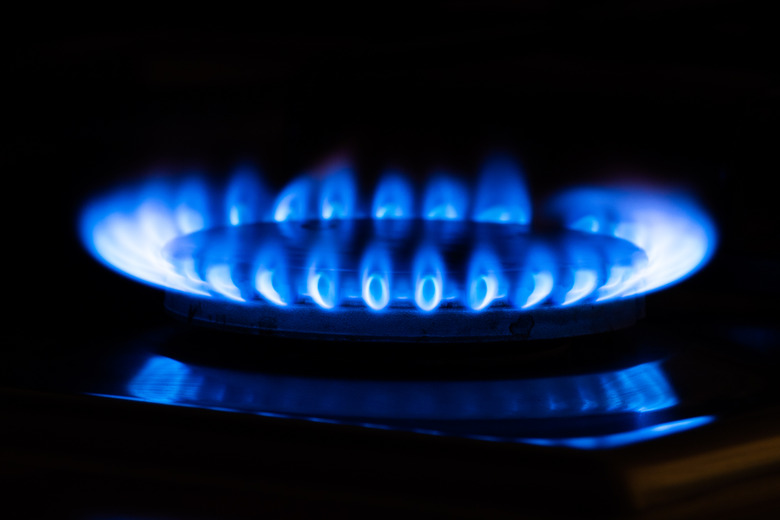How Does Temperature Affect The Rate Of Reaction?
Chemical reactions are everywhere around you and inside you. In addition to the biochemical reactions that allow you to transform the molecules you eat and breathe into usable energy, there are industrial laboratories in cities around the world producing chemicals as well as products that rely on chemicals for their manufacture.
One of the most important aspects of a reaction, in addition to the product or products produced and having a proper supply of reactants, is how quickly a reaction can be expected to proceed. This can have an impact on safety, product quality and other outcomes. One of the factors affecting reaction rates that can be changed with ease in most cases in the lab is temperature. The effect of temperature on rate of reaction can have a tremendous impact.
Think for a moment about how temperature might be expected to impact reaction rates, and read on for more insight about the various things that can speed up or slow down chemical reactions.
What Factors Affect Reaction Rates?
What Factors Affect Reaction Rates?
The effect of temperature on rate of reaction is just one of the things that can affect how a reaction proceeds, that is, how quickly whatever reactants are present become transformed into products. Of course, many of these factors are active at all times and can have competing influences on the overall rate of a given reaction.
- **Reactant concentration:** The more concentrated the solution, the faster the rate. For gases, increasing the pressure indirectly has this effect by elevating concentration.
- **Physical state of reactants:** Powders dropped in solution react faster than solid chunks like tablets do because they expose a greater surface area for reactions to occur immediately.
- **The presence, type and concentration of a catalyst or inhibitor:** A catalyst speeds up a reaction, while inhibitors slow them down.
- **Light:** Light of a given wavelength can speed up some reactions.
- **Temperature:** Most reactions speed up with increasing temperature, and you're about to learn why.
The Effect of Temperature on Rate of Reaction
The Effect of Temperature on Rate of Reaction
As a rule of thumb, a rise in temperature of 10 °C doubles the reaction rate. Why might increasing the temperature alter the rate of a chemical reaction?
If you're thinking it's because the molecules involved are moving more quickly when the temperature is higher, you're on the right track. Temperature is actually a measure of the average kinetic energy of molecules in motion.
Molecules in motion tend to stay in motion until they encounter an external force, and when different reactant molecules are mixed together, they have little to run into besides each other.
When temperature increases, the amount of atomic or molecular collisions between molecules increases. But the change in reaction rate with temperature is not just a function of the temperature; instead, temperature increases actually affect the rate constants (written k) of reactions in a predictable way.
What Is the Collision Theory of Reaction Rates?
What Is the Collision Theory of Reaction Rates?
When molecules collide, they can do a number of things. The same is true of any two objects encountering each other in the real world. If you drove blindly though a parking lot trying to fit your car at random into parking spaces without looking at the lines on the pavement, you would have a relatively small chance of success of lining the vehicle up properly. But if you did this more quickly, you would have more total successes even if your error rate stayed the same.
This is sort of what happens when reactant molecules collide. They need to collide in order to be close enough together to interact, but while this condition is necessary, it is not sufficient. The molecules must also be in an optimal orientation in space to trigger a reaction.
In the end, the effect of temperature on reaction rate is determined through its effect on the rate constant k, which in turn depends on the **activation energy Ea **of the reaction in question. Higher temperatures will see a higher fraction of molecules attain this minimum kinetic energy needed to get the reaction started.
Cite This Article
MLA
Beck, Kevin. "How Does Temperature Affect The Rate Of Reaction?" sciencing.com, https://www.sciencing.com/how-does-temperature-affect-the-rate-of-reaction-13712169/. 8 March 2020.
APA
Beck, Kevin. (2020, March 8). How Does Temperature Affect The Rate Of Reaction?. sciencing.com. Retrieved from https://www.sciencing.com/how-does-temperature-affect-the-rate-of-reaction-13712169/
Chicago
Beck, Kevin. How Does Temperature Affect The Rate Of Reaction? last modified August 30, 2022. https://www.sciencing.com/how-does-temperature-affect-the-rate-of-reaction-13712169/
